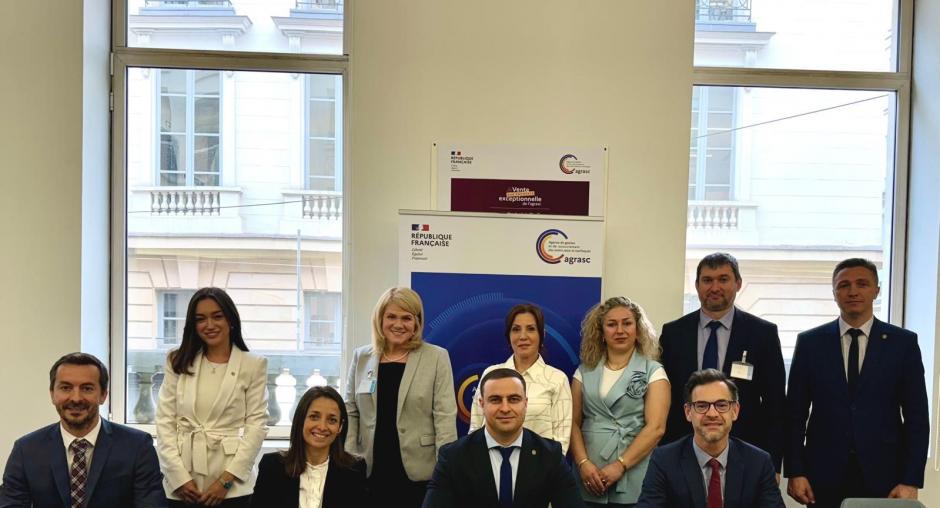OSCE supports exchange of practices on asset recovery and asset management among participating States

Members of the Balkan Asset Management Interagency Network (BAMIN) and the French Agency for the Management and Recovery of Seized and Confiscated Asset met in Paris on 10 and 11 June 2024 to exchange experiences and good practices.
The meeting, facilitated by the OSCE Transnational Threats Department and the Office of the OSCE Co-ordinator of Economic and Environmental Activities, was attended by the Head of the Anti-Corruption Centre of the Republic of Moldova, within which the Criminal Asset Recovery and Management Agency is located, and the Agency for the Management of Seized and Confiscated Assets of North Macedonia.
Practitioners exchanged experiences and practices in managing movable assets such as vehicles, cash, precious metals and crypto currency. The host of the meeting presented the vast portfolio of properties seized and confiscated in France and provided valuable suggestions for their effective management. North Macedonia presented key asset management innovations included within its new asset management law, including the distribution of a percentage of the sale of confiscated assets for state agency use and the vital inclusion of the pre-seizure planning process.
In a special session, the French Plate-Forme D’Identification des Avoirs Criminels (PIAC), the French law enforcement Asset Recovery Office, joined the meeting and discussed financial investigation for asset tracing, the importance of domestic inter-agency co-operation and the collection of statistics. The discussion highlighted the need to improve co-operation between the investigators, prosecutors and asset managers, to ensure assets maintain their value throughout the judicial process.
BAMIN is an informal network of 23 government asset management offices or departments, currently headed by North Macedonia.
The OSCE provides operational support to the BAMIN network as part of the “Strengthening Asset recovery Efforts in the OSCE Region” project, which is supported financially by Austria, Germany, Italy and the United States.
